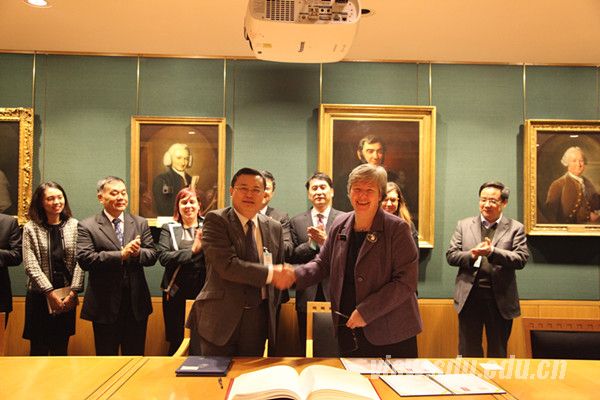From November 30 to December 5, Zhang Rong, President of Shandong University (SDU), led a delegation on a visit to the National Library of France and the British Library and signed Memorandums of Understanding (MOU) with both of them. The delegation also reached a preliminary cooperation agreement with a Library of University of Oxford. The signing of the two Memorandums of Understanding with National Library of France and the British Library means that the two libraries will become partners of SDU “A Project on Global Collection and Compilation of Chinese Ancient Books”. SDU will work on part of the Chinese collections of the two libraries, mainly cataloguing and digitizing the Chinese works. This will help in providing global experts and scholars with precious resources to study ancient Chinese history and culture.

On December 2, Bruno Racine, Curator of the National Library of France, gave a detailed introduction at the signing ceremony on the Library’s historical development, library collection and document protection, and then conducted an in-depth exchange of views on the preservation and cataloging of ancient and rare books, especially in regards to “A Project on Global Collection and Compilation of Chinese Ancient Books” carried out by Shandong University.

On December 3, the SDU delegation had an in-depth discussion with Caroline Brazier, the Director of Collections of the British Library, and Sara Chiesura from the Chinese Collection of the British Library, on how to promote the further cooperative projects between the two institutions. Representatives from SDU’s Graduate School, International Affairs Department, History and Culture School and Chinese Classical Literature Research Institute attended the signing ceremony.
"A Project on Global Collection and Compilation of Chinese Ancient Books", as a significant cultural project promoted by Shandong University, aims to cooperate with global sinology scholars and library institutions, collect and copy the lost Chinese ancient books overseas, translating them into foreign languages at the same time in order to allow the beauty and wisdom in Chinese ancient books to be studied and enjoyed by the whole world.
Source:www.view.sdu.edu.cn